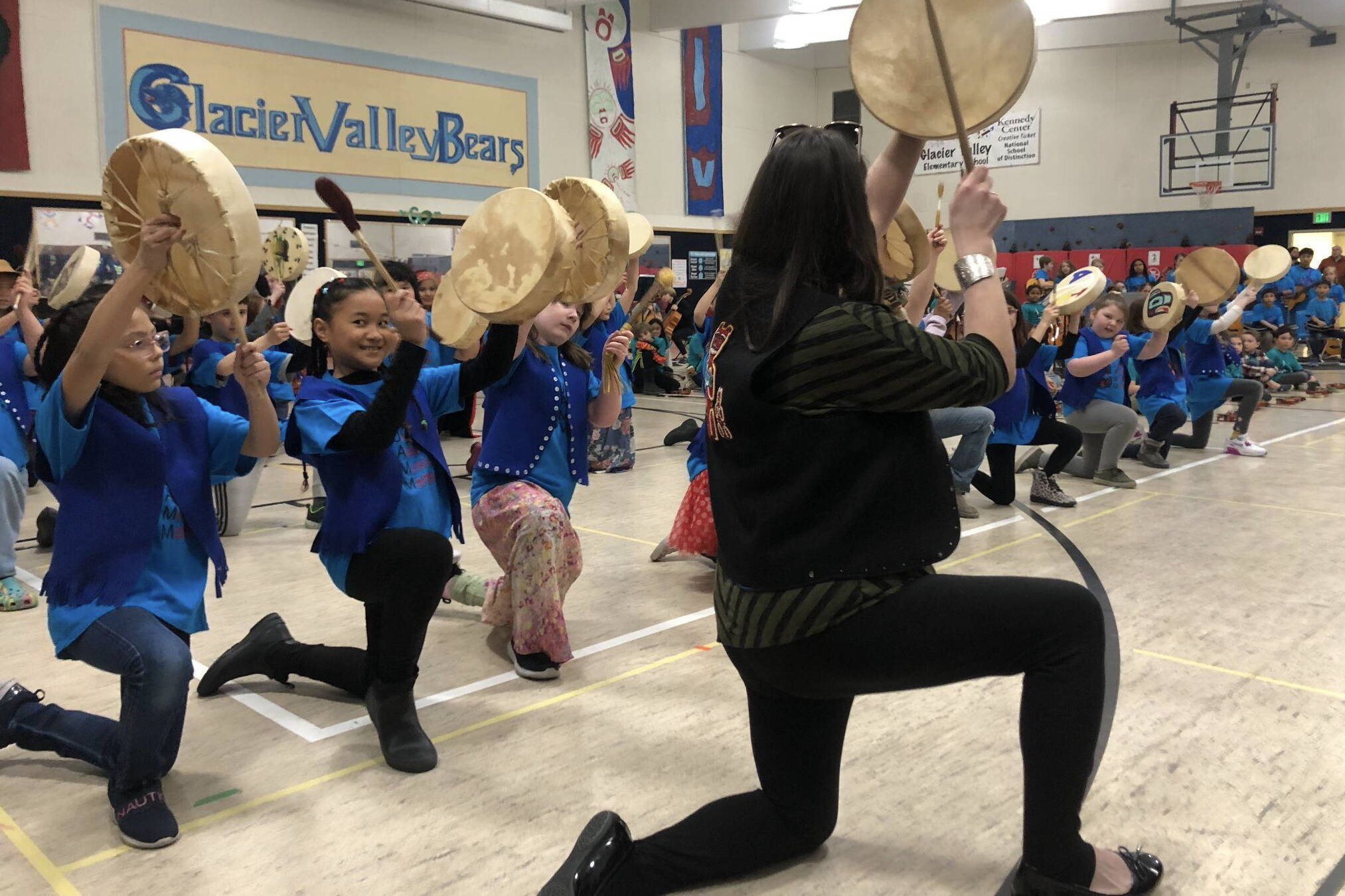The Juneau Alaska Music Matters program is among 11 finalists for four $500,000 awards for youth music programs nationwide, which would come close to doubling the local nonprofit’s current budget during the next five years the money is allocated, officials said Monday.
Winners of the fifth annual Accelerator Awards presented by The Lewis Prize for Music, a philanthropist organization founded in 2018, are scheduled to be announced Jan. 9, according to a statement by the organization. Meghan Johnson, JAMM’s executive director of the JAMM program, said in an interview the funds would allow for a significant boost in staffing and program offerings — and ensure they are financially stable in the coming years.
“This would certainly be by far the largest award we’ve ever received,” she said. “And to know that to have it go for five years and not have to reapply every year is nice too.”
JAMM was selected as a finalist from 261 applicants in 42 U.S. states and territories, according to the Lewis Prize organization.
Johnson said JAMM’s current budget — which relies largely on local and state funding, plus some national grants — is about $130,000 a year. More than 500 local students are participating this year in the program, which originated in 2010.
JAMM’s website describes itself as “inspired by El Sistema in Venezuela, which uses music as a vehicle for social change.” The tuition-free program provides in-class and after-school programs to students from kindergarten through middle school.
Among JAMM’s distinctive offerings is the Haa Ḵusteeyí: Our Way of Life program, focusing on “Lingít values through story and song.” Developed in collaboration with numerous Southeast Alaska Native organizations and tribal cultural leaders.
“We’re part of the community-wide effort to revitalize the Lingít language, but especially for us it’s to normalize its use in the schools and to show that a specialized subject like music can be taught in an Indigenous language,” Johnson said.
Another area of focus for Lewis Prize contenders is creative youth development via leadership by peers, which Johnson said is part of the El Sistema roots of JAMM.
“We want students to see themselves as artists, educators, teachers and musicians,” she said. “I mean they’re all of those things and through music they can engage in their civic engagement, there are opportunities to teach and work with others. There’s a built-in peer mentorship, and then performance and creativity.”
In a press release, the Lewis Prize for Music states JAMM was identified “as a leading organization in the field of music for positive social change.”
“The 11 Finalists for the 2024 Accelerator Awards have smart, articulate, passionate leaders that collaborate with their teams and local leaders to provide adolescents most negatively impacted by inequities with all they need to have productive, exciting and rewarding lives,” Daniel Lewis, founder of The Lewis Prize for Music, said in a prepared statement. “I am enthusiastic that these organizations focus on developing the artistic, interpersonal and leadership skills as well as the self-confidence, ambition and discipline of their young members to become creative participants in an educated local workforce and a sustainable economy.”
Among JAMM’s upcoming performances are paper violin concerts by kindergarten participants on Dec. 9 at Kax̲dig̲oowu Héen Elementary School and Dec. 15 at Sítʼ Eetí Shaanáx̱ Glacier Valley Elementary School, Johnson said.
• Contact Mark Sabbatini at mark.sabbatini@juneauempire.com or (907) 957-2306.

